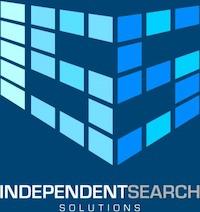The medical device industry is one of the most dynamic and impactful sectors in healthcare. At its core lies Research and Development (R&D), where innovation meets real-world medical challenges. For professionals in this field, career development involves more than just honing technical skills—it requires strategic decisions, including the sometimes-difficult choice to change jobs.
The Landscape of Medical Device R&D
Medical Device R&D involves the design, development, testing, and regulatory approval of devices ranging from surgical instruments to advanced diagnostics and implants. The field is highly multidisciplinary, bringing together engineering, biology, materials science, software development, and regulatory affairs.
Given the complexity and rapid advancement in this space, professionals must stay on the cutting edge. This means continuous learning, exposure to diverse technologies, and working within companies that support innovation and professional growth.
Career Development Pathways
There are generally three main tracks for career advancement in Medical Device R&D:
- Technical Expertise: Becoming a subject matter expert (SME) in a specific domain such as biomaterials, imaging systems, or embedded software.
- Project and Program Management: Leading cross-functional teams, managing timelines, and coordinating product development lifecycles.
- Leadership and Strategy: Transitioning into roles like R&D Director, VP of Engineering, or CTO, which require both technical understanding and strategic vision.
While staying in one organization can offer stability, it may also limit exposure to new challenges, technologies, or organizational cultures. This brings us to a critical but often under-discussed component of career growth: job mobility.
Why Changing Jobs Can Boost Your Career
- Diverse Experience = Broader Skill Set
Working at different companies exposes you to varied technologies, development methodologies, and regulatory strategies. A startup might offer experience with rapid prototyping and lean product development, while a large multinational might provide insight into advanced quality systems and global regulatory frameworks. Each move can add layers of expertise that make you a more versatile and valuable professional.
- Faster Career Advancement
Many professionals’ experience stagnation in promotions or compensation when staying too long in one role. Changing jobs can offer access to higher-level positions, increased responsibilities, and better salary packages. External opportunities often recognize your full market value, whereas internal promotions may be limited by company structure or budget.
- Networking and Industry Visibility
Job changes expand your professional network, exposing you to new mentors, collaborators, and stakeholders. This visibility can open doors to speaking engagements, publications, and other thought-leadership opportunities—crucial for long-term career branding.
- Access to Cutting-Edge Innovation
Some companies lead in specific niches of medical technology. Moving to such firms can immerse you in groundbreaking work—be it AI-powered diagnostics, robotic surgery, or next-gen implantable devices. These experiences can make your resume stand out and position you as a future leader in emerging technologies.
- Cultural and Organizational Fit
Not all companies are the same. Finding a company whose values, pace, and mission align with your own can significantly enhance job satisfaction and productivity. Sometimes, a change is necessary to find an environment that truly fosters your growth.
When Should You Consider Changing Jobs?
- You’ve outgrown your current role but there’s limited upward mobility.
- Your learning curve has plateaued.
- You’re not being challenged or exposed to new technologies.
- Your compensation or recognition doesn’t align with your contributions.
- You want to pivot to a different specialization (e.g., from hardware to software development or from R&D to product management).
Making a Strategic Move
If you decide to change jobs, be strategic. Look for companies that:
- Invest heavily in R&D and innovation.
- Have strong mentorship or leadership development programs.
- Are working on novel technologies that align with your interests.
- Offer a clear career path and room for advancement.
- Foster a collaborative and inclusive culture.
Also, tailor your resume and interview strategy to highlight not just your technical competencies but also your ability to learn, adapt, and contribute to innovation in new environments.
Final Thoughts
Career development in Medical Device R&D is a journey of continual evolution. While loyalty and long-term tenure have their place, strategic job changes can serve as powerful accelerators. They offer fresh challenges, broadened skills, and faster progression toward your professional goals. If approached thoughtfully, a job change is not a detour—it’s a critical step forward on your path to making a lasting impact in healthcare innovation.
At Independent Search Solutions Ltd I am working on a range of Snr, Lead and Project Management R&D roles. Get in contact and let’s discuss your next career move.
Patrick Fitzmaurice
HR & Recruitment Director ISS Ltd
Tel: 00353 (0) 98 238 00
Mobile: 00353 (0) 87 25 35 247
Independent Search Solutions Ltd – Medical Device Sales Marketing Recruitment







